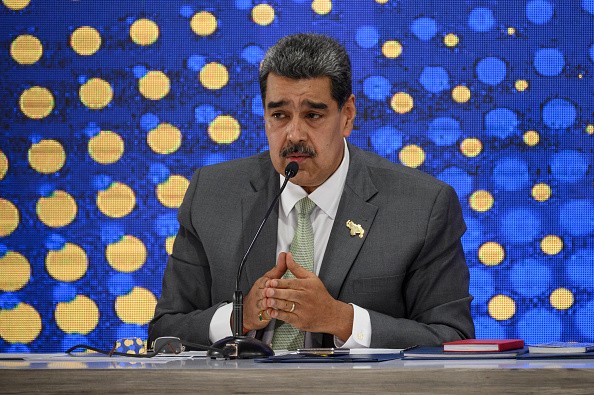
The Biden administration announced on Wednesday it will reimpose oil sanctions on Venezuela after Maduro's government allegedly barred rivals from challenging him in the polls.
This comes after the US loosened sanctions on the South American country when Maduro and the opposition agreed in Barbados last October to hold a free and fair election in 2024, albeit under the sharp eye of international spectators.
State Department spokesman Matthew Miller said in a statement that the US is concerned that Maduro and his representatives prevented the democratic opposition from registering the candidate of their choice, harassed and intimidated political opponents, and unjustly detained numerous political actors and members of civil society.
Miller has urged Maduro to release all political prisoners immediately and without conditions, as well as to allow all candidates and parties to take part in the electoral process.
Miller said that Venezuelan oil companies will have until May 31 to comply with the sanctions throughout the winding-down period.
However, the State Department said that Washington would "continue to assess sanctions policy" in light of the steps taken by Maduro's government before the election.
Venezuela possesses the world's largest proven oil reserves, but years of poor management and harsh sanctions have caused production to decline drastically.
Caracas vowed that its oil industry would continue regardless of US actions.
Petroleum Minister Pedro Tellechea told reporters ahead of Washington's announcement that they would not stop, with or without a license.
As he runs for reelection this year, Biden faces some risk in implementing the sanctions.
Furthermore, Biden has already faced threats from Venezuelan officials in the sensitive area of migration. Over the past decade, more than seven million Venezuelans have left, with many of them arriving in the US.








